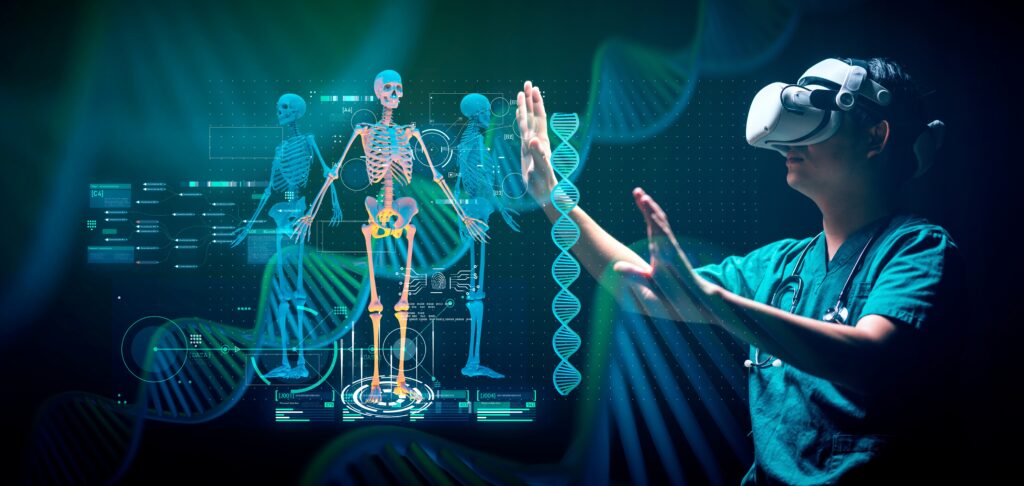
AI Revolutionizing Healthcare: Medical Diagnosis, Patient Monitoring, and Personalized TreatmentAI Revolutionizing Healthcare: Medical Diagnosis, Patient Monitoring, and Personalized Treatment Artificial Intelligence (AI) is transforming the healthcare industry, revolutionizing aspects such as medical diagnosis, patient monitoring, and personalized treatment. Medical Diagnosis: * Automated Image Analysis: AI algorithms can analyze medical images, such as X-rays, CT scans, and MRIs, with high accuracy and speed. This aids in diagnosing diseases earlier and more accurately, improving patient outcomes. * Symptom Checkers and Chatbots: AI-powered symptom checkers and chatbots provide patients with immediate advice based on their symptoms. This helps triage patients, reduces unnecessary doctor visits, and enables timely intervention. * Machine Learning for Precision Medicine: AI algorithms can analyze vast amounts of genetic and clinical data to identify patterns and predict disease risk. This enables targeted therapies and personalized treatments. Patient Monitoring: * Remote Patient Monitoring: AI-enabled wearable devices and IoT sensors can continuously monitor patients’ vital signs, activity levels, and medication adherence. This allows for proactive care, early detection of complications, and more personalized interventions. * Predictive Analytics for Risk Stratification: AI algorithms can identify patients at high risk for complications or readmission. This helps healthcare providers prioritize care and allocate resources effectively. * AI-powered Telemedicine: AI-enabled telemedicine platforms provide remote consultations, patient education, and monitoring. This increases access to care, especially for underserved populations. Personalized Treatment: * Precision Medicine: AI algorithms can analyze individual patient data to tailor treatments based on their specific genetics, lifestyle, and environment. This optimizes treatment plans, reduces side effects, and improves patient outcomes. * Digital Twins and Simulations: AI algorithms can create digital twins of patients to simulate disease progression and treatment response. This allows for virtual testing of different therapies before administering them to patients. * Patient Engagement and Empowerment: AI-powered apps and online platforms educate patients about their conditions, provide support, and facilitate communication with healthcare providers. This promotes patient engagement and improves adherence to treatment plans. The integration of AI in healthcare is unlocking unprecedented possibilities for improving medical diagnosis, patient monitoring, and personalized treatment. By harnessing the power of AI, healthcare providers can enhance patient care, reduce costs, and ultimately improve health outcomes for all.
Posted inNews